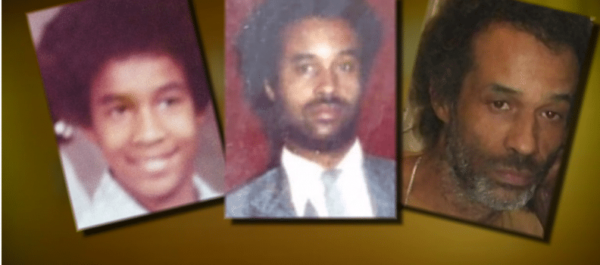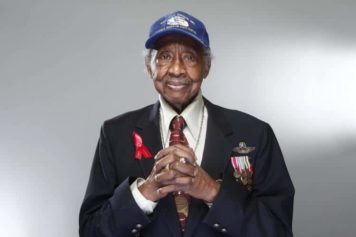
Veteran Vance Perry freezes to death after being released from VA hospital.
For 57-year-old Vance Perry, it all started with a routine health appointment for paranoid schizophrenia. Transported by a Veterans Affairs van, shortly afterward Perry would be admitted to a Madison, Wisconsin, VA hospital for mental instability. By New Year’s Eve, however, he’d been released. Wearing no outerwear but a light jacket, the army veteran would wander into a parking lot and freeze to death in frigid temperatures that had only reached 3 degrees that day.
Whether it was a simple oversight or a serious lapse in protocol, neither scenario brings much comfort to the Perry family, who were left scrambling to pay for funeral costs. Even if the hospital is ultimately held responsible, in the end, another veteran was allowed to slip through the cracks.
Offering their own version of events, the hospital advised that Perry had refused a taxi that had been provided for him, with a spokesperson telling station KIRO 7 that “it’s unclear why the veteran did not utilize that transportation and return home per the discharge plan.”
Perry’s children take issue with this account. Reaching out to NBC15 to share their father’s story, his son Vance Perry Jr. said, “They are responsible. They should have made sure that he got back into the vehicle that they paid for to go back because they admitted him.”
Daughter Erika Perry also shared her concerns, stating, “It’s just common sense. If you’re a hospital that cares about the welfare and mental welfare, especially if it’s a mental patient of his capacity. It’s just common sense to make sure that they get back to where they’re going if you pick them up. It doesn’t make sense, especially being pre-warned in that type of weather, that he wanders.”
“There is video footage showing my dad wandering off with no escort,” Erika Perry added. “It’s negligence.”
Left with more questions than answers, the Perry family has since gone public with their story as a reminder that their father’s death — inside a freezing parking lot — could have perhaps been prevented.
As daughter Erika expressed, “He was the most giving person that I ever met. It’s just sad he died a lonely death. Regardless of his mental illness — and especially because of his mental illness — he should have been taken better care of.”
This isn’t the first time a Wisconsin VA hospital has come under fire. Just three months earlier, a settlement had been reached — to the tune of $2.3 million — in the 2014 drug overdose death of Jason Simcakoski, a former Marine, at a Tomah, Wisconsin, VA facility. Although the agreement made provisions for his child and widow, Heather Simcakoski, it also allowed the hospital to deny real culpability, with verbiage that advised the settlement “should not be construed as an admission of liability or fault on the part of the United States, its agents, servants, or employees, and it is specifically denied that they are liable to the plaintiffs.”
For a country that seemingly prides itself on patriotism, when it comes to the well-being of veterans our record remains spotty at best. Millions of Americans suffer from various forms of mental illness, but for veterans, the numbers are often higher.
According to a report titled “Suicide Among Veterans and Other Americans” from the U.S. Department of Mental Health, “In 2014, suicide was the 10th-leading cause of death in the United States, and rates of suicide in the U.S. general population are increasing.”
The report goes on to highlight the increase amongst veterans, “In 2014, Veterans accounted for 18 percent of all deaths by suicide among U.S. adults and constituted 8.5 percent of the U.S. adult population (ages 18 and older). In 2010, Veterans accounted for 20.1 percent of all deaths by suicide and represented 9.6 percent of the U.S. adult population.”
Health care remains a topic of contention in Washington. As our elected officials’ debate — while enjoying full benefits courtesy of American tax dollars — the general public has largely been left to fend for itself as new attacks on Medicaid leave even more exposed.
After Donald Trump faced criticism for his comments and actions towards a number of veterans — including Senator John McCain — the White House has sought to distance itself from the controversy by taking a stance regarding mental health in the veteran community courtesy of a new executive order.
“Every single veteran who needs mental health and suicide prevention services will receive them immediately upon their separation from military service. They get out of the military, and they had nobody to talk to, nobody to speak to. And it’s been a very sad situation, but we’re taking care of them,” President Trump said in his January 9 announcement of his executive order that automatically begins mental health coverage for military personnel who are leaving the service.
But in order to truly create sustainable change, additional resources must also be given. While not every veteran receives care via the Department of Veteran Affairs, nine million currently qualify, an amount that mandates trained staff and personnel, something former Press Secretary Sean Spicer balked at a year ago, insisting that “hiring more people isn’t the answer, it’s hiring the right people.”
It’s a narrative the Trump administration bought into early on, implementing a federal hiring freeze last January that made it even more difficult to fully staff VA facilities across the country, a move that health policy researcher Carrie Farmer told TIME will “just exacerbate the problems they already have.”
These efforts have made it even more difficult to address long wait times and understaffed facilities at VA facilities across the country, with doctor vacancies also contributing to long waits.
For the Madison location that Perry inadvertently walked away from, a 129-bed facility that sees upwards of roughly 42,000 veterans a year, it’s a problem they’re well familiar with.
As the Wisconsin State Journal reported, the hospital logged in almost 700 complaints in a two-year span, indicating a larger issue for those that deal with our veterans on a daily basis, including Perry. A bitter reminder that true patriotism extends far beyond just singing the national anthem, it requires we care for our veterans as well, sooner rather than later.


